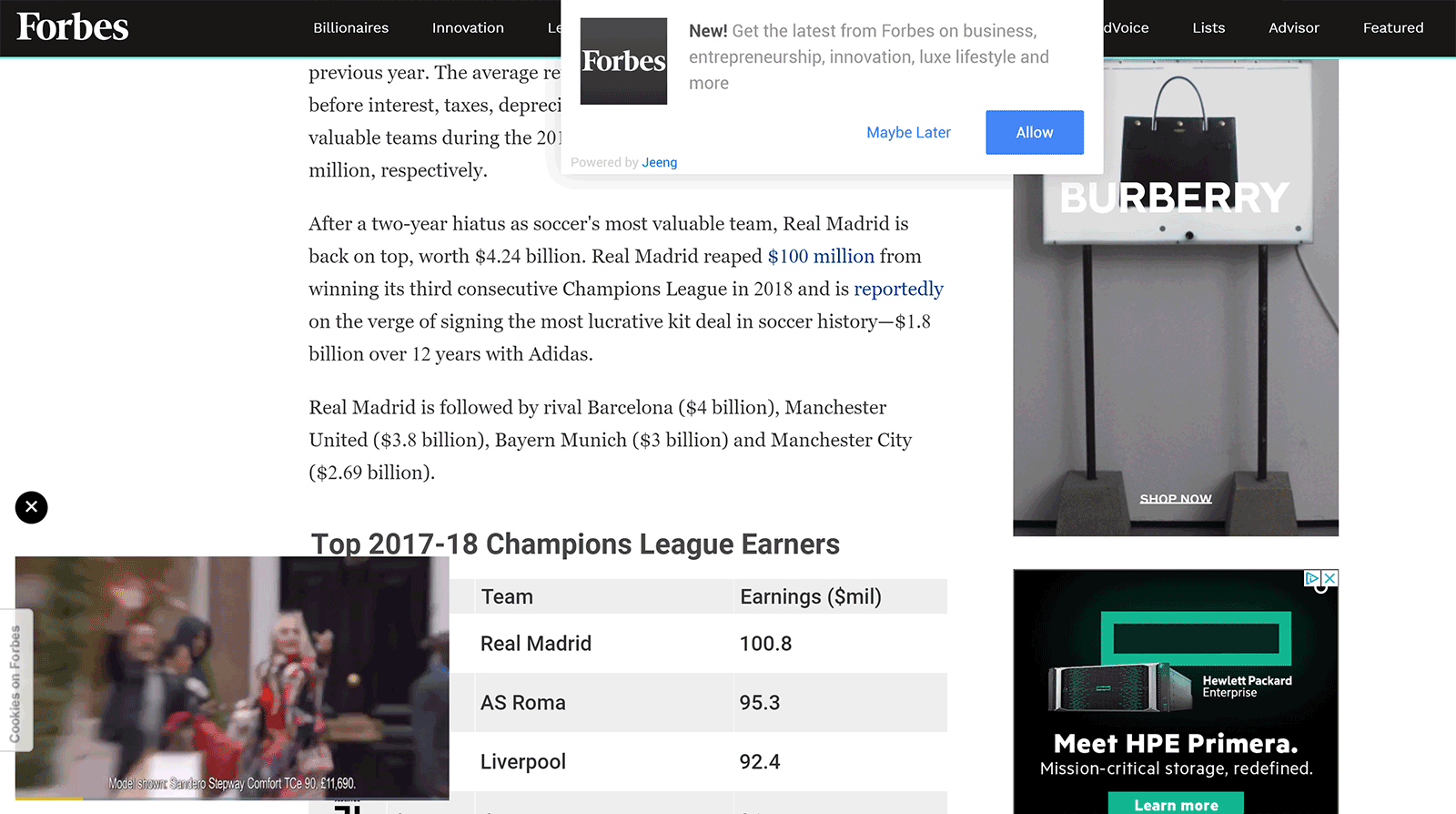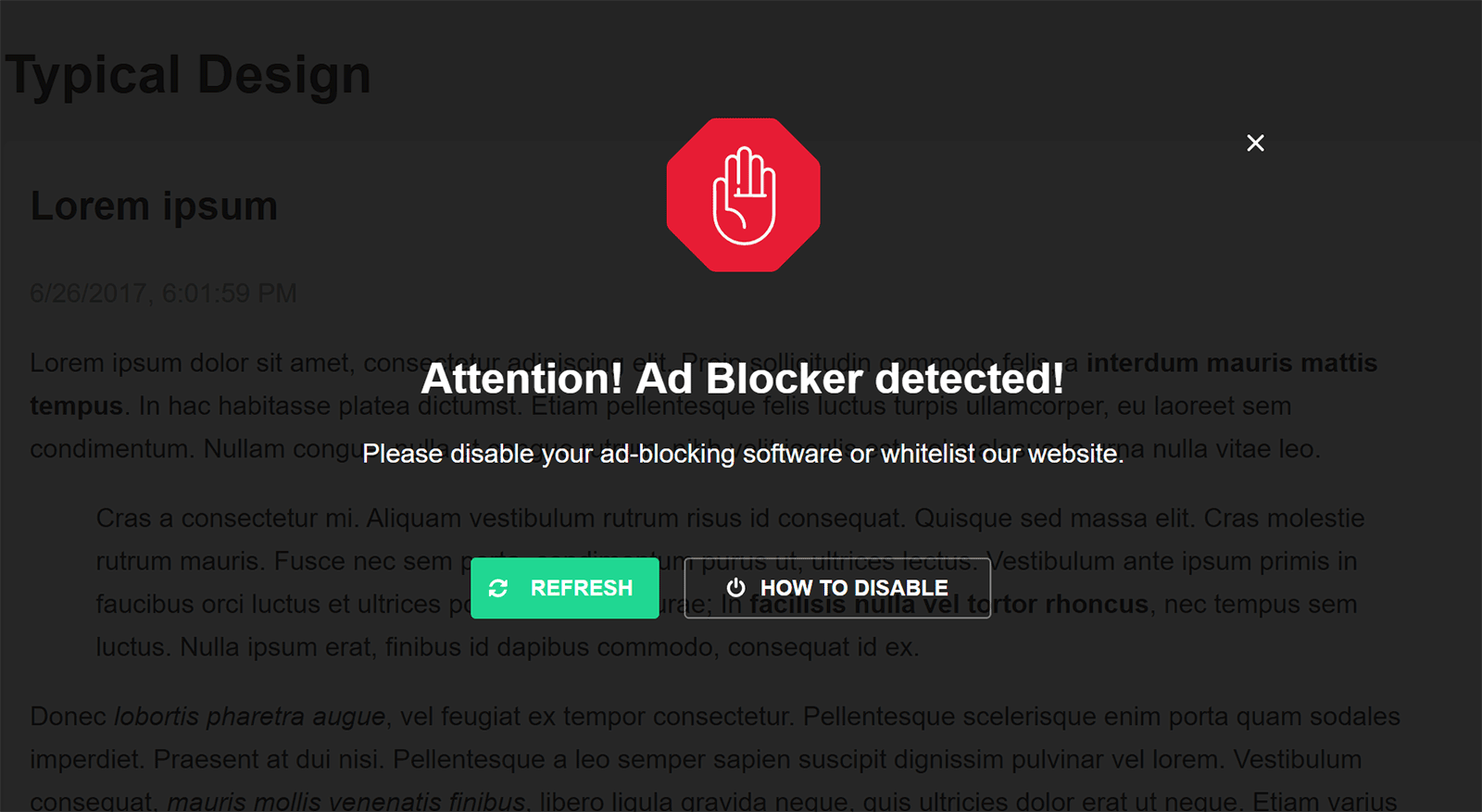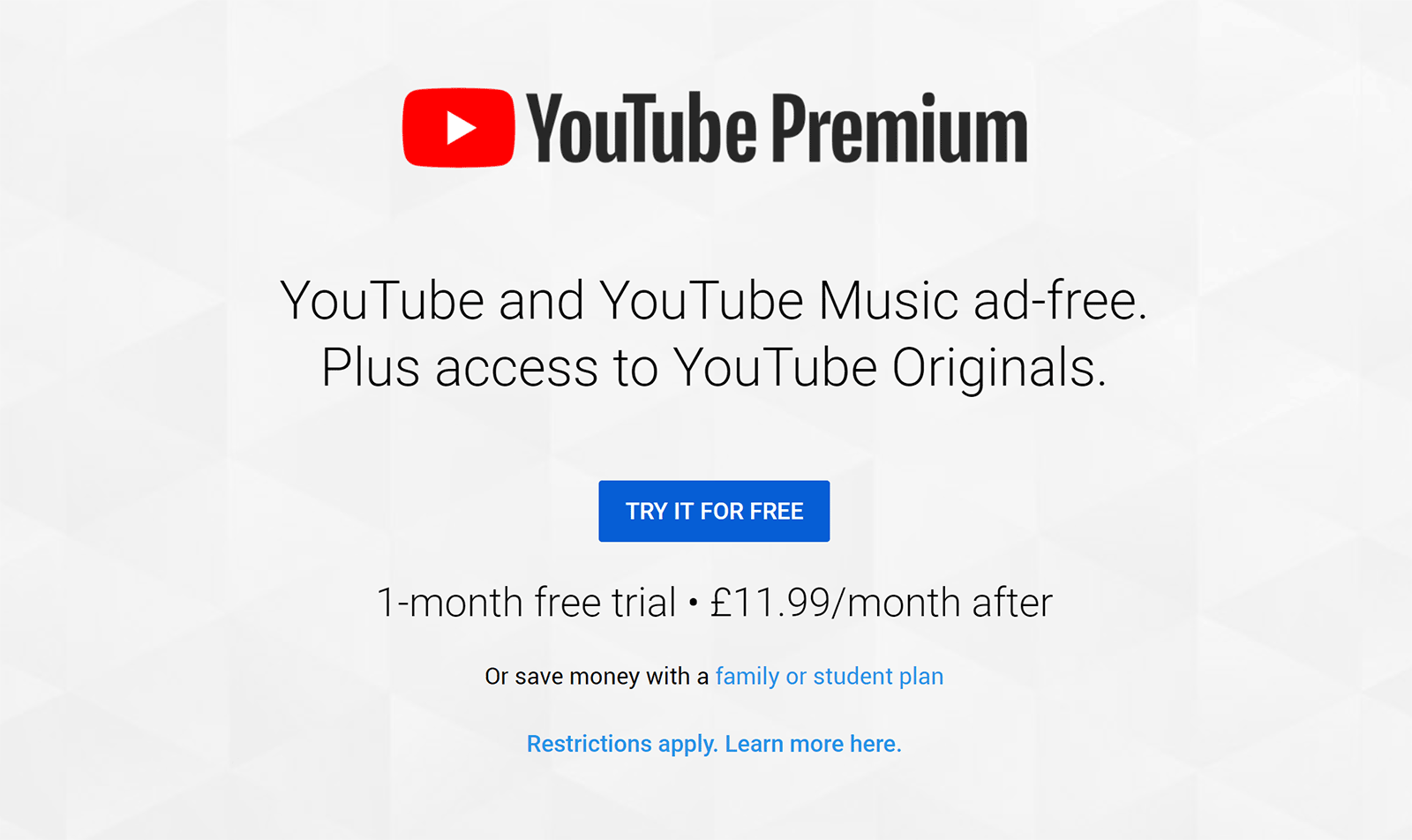I first launched KevinMuldoon.com in 2002. At that point, I had been working online for a few years.
Buying my name ensured that I held the domain name for my name and brand, however for the first few years I just used it as a CV type website which advised who I was, listed the websites I owned, and displayed a contact form so people could get in touch.
When I switched gears and used this domain as a blog, I displayed advertisements and have continued to display ads since that day. Ads were always one of the main ways I made money from this blog and others.
A few days ago I decided to remove all ads from this website.
In this blog post, I would like to explain why.
The Decline of Banner Ads
Banner ads have been on the decline for years.
One reason for this is that visitors have become blind to them. It is not surprising that click rates keep dropping every year when websites overwhelm visitors with a ton of ads.
Many ads, such as background ads, pop-up ads, video ads, and full-page ads, are intrusive.

Many websites also track what users are doing so that they can show relevant ads to you. Others are more malicious.
Unfortunately, the mistakes of some websites have affected all website owners as ad blockers have become commonplace (sidenote: Do not use Brave Browser).
Therefore, even if you display banner ads on your website, they will not be displayed to all visitors.
If you want to test this for yourself, look at how many impressions your banners have had on your website over the last month (i.e. from the dashboard of your ad network or the ad management script you use). Then compare those impressions to your total page views.
Obviously, figures from stats programs can be different due to the way they track things, but you should notice that your banner impressions are significantly lower than your total page views.
Revenue Drops for All Content Websites
Content websites such as blogs and news websites, and video hubs such as YouTube, have been greatly affected by ad blockers.
This is why I have always had mixed feelings about ad blockers. As an internet user, I do not want everything I do to be tracked. Nor do I want an avalanche of advertisements when I visit a page.
However, as a website owner, I also know first-hand how ad blockers affect website income. Those that do use ad blockers do not just block websites with intrusive ads. They block everything. Even small blogs with a single banner will be affected.
A typical content website owner needs to pay for:
- Website hosting
- Website backups
- Security
- Design work
- Additional plugins and services to run everything effectively
The above costs do not even take into account the time it takes to maintain a website.
With website income going down and expenditure remaining at the same level, it should be no surprise that the rise of ad blockers has had serious repercussions.
I have personally lost tens of thousands of dollars to ad blockers due to reduced banner income on my websites and on YouTube, but I also know that many large content websites have been had to let writers go because their revenue was decimated.
Some website owners are fighting back by using services such as No Ad Block. If the user does not disable their ad blocker, they cannot view the website.

I have not raised the issue of revenue dropping to get sympathy from those who do use ad blockers. It is, however, important to recognise the effect they have had on websites and the way they run their online business.
For further reading, I highly recommend checking out Brian Jackons’ article “Ad Blockers – Are They Affecting Your Income? (What to Do)“.
A New Way to Generate Income
One of the reasons that website owners like myself have not embraced ad blockers is because there is not really any viable alternative beyond pushing your own proucts to visitors.
I have read debates about ad blocking and those that support ad-blocking enthusiastically say that they disable it for websites they like. The reality is that most do not. Nor do they make donations to the websites they visit regularly.
Newspapers such as The Washington Post now keep their content behind a paywall. You need to sign up to view the content and even then you are only permitted a defined number of views every month.

I will be the first to admit that the old online business model of displaying banner advertisements is outdated; yet the reality is that most internet users want good content and do not want to pay for it.
We need to adapt:
- Website owners need to stop placing intrusive ads on their website
- Internet users need to step up and support content creators financially
Will internet users meet website owners half way? I am not so sure.
I think the ad situation could evolve in a number of ways, however in the short-term, paid content is always going to be met with resistance.
YouTube, for example, is heavily promoting YouTube Premium. For £11.99 a month you can view YouTube without ads and get full access to the Spotify alternative YouTube Music (which retails at £9.99 on its own). It also lets you download videos to watch later.
When you consider everything you get, it is a good deal, but it has yet to gain popularity.

If internet users do not support content websites and continue to block ads, we will probably see websites increase their use of other revenue streams such as sponsored articles, paid text links for SEO, and increased use of affiliate links within content.
Other websites will just cease operating because their business model is not viable.
The Coalition for Better Ads organisation is trying to address the situation differently. Their “Better Ad Standards” aims to improve the advertising situation across the internet.
Google state that they are following their guidelines, however their actions tell a different story. In 2017, Google added an ad blocker to Chrome to remove many bad ads, however in 2019 they have been found to be preventing ad blockers from working in Chrome.
This should be no surprise given that Google Adsense tracks a lot of information and is regularly blocked by ad blockers.
Time will tell how this one plays out.
The Benefits of No Ads
The current landscape forced my hand about ads, however there are benefits to removing banner advertisements from your website.
For starters, you will reduce the size of your web pages. Self-hosted banner images can be optimised, but ad networks such as Google Adsense always slowed down pages.
Faster page loading times should help search engine rankings, but arguably one of the best reasons to remove ads from your website is to free up space in your website design.
Previously, I displayed a 728×90 banner at the top of each page, another 728×90 banner just below post titles, a 120×600 banner in my sidebar, and a 300×300 banner in my footer.
Removing these banners gives me more space to promote myself and my content.
I have more space to promote my two YouTube channels; which will hopefully lead to more people following me on YouTube.
I also have more room on my sidebar to promote articles. This should encourage visitors to stay on my website longer and read other articles I have published; which may also lead to more people to subscribe to my blog.
Blog revenue will go down, but banner ad income had been decimiated so much that the benefits of removing banner advertisements now outweigh the profits I have lost.
Plus, it is important to remember that I can still link to websites using text affiliate links throughout my website. That aspect of my blog income will not be affected.
Final Thoughts
I hope you have enjoyed this look at why I removed banner advertisements from my blog.
Some of you may disagree with my mixed opinions on ad blocking, or think that I am making a big mistake removing banner ads; however I also know that there are many other bloggers and website owners in the same situation as me.
Hopefully I have given you some food for thought.
Thanks for reading.
Kevin
Featured Image Credit: Image by 200 Degrees from Pixabay

